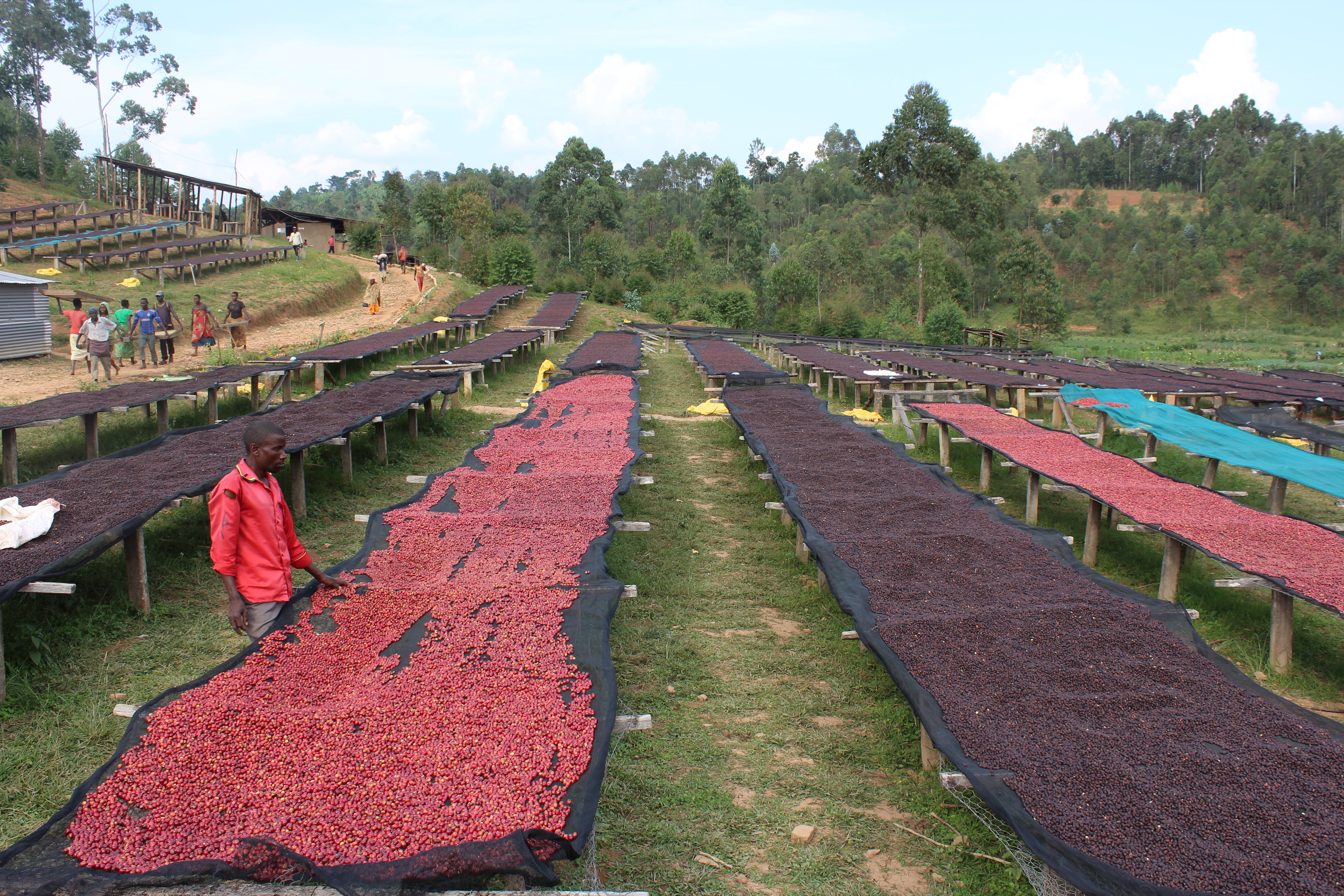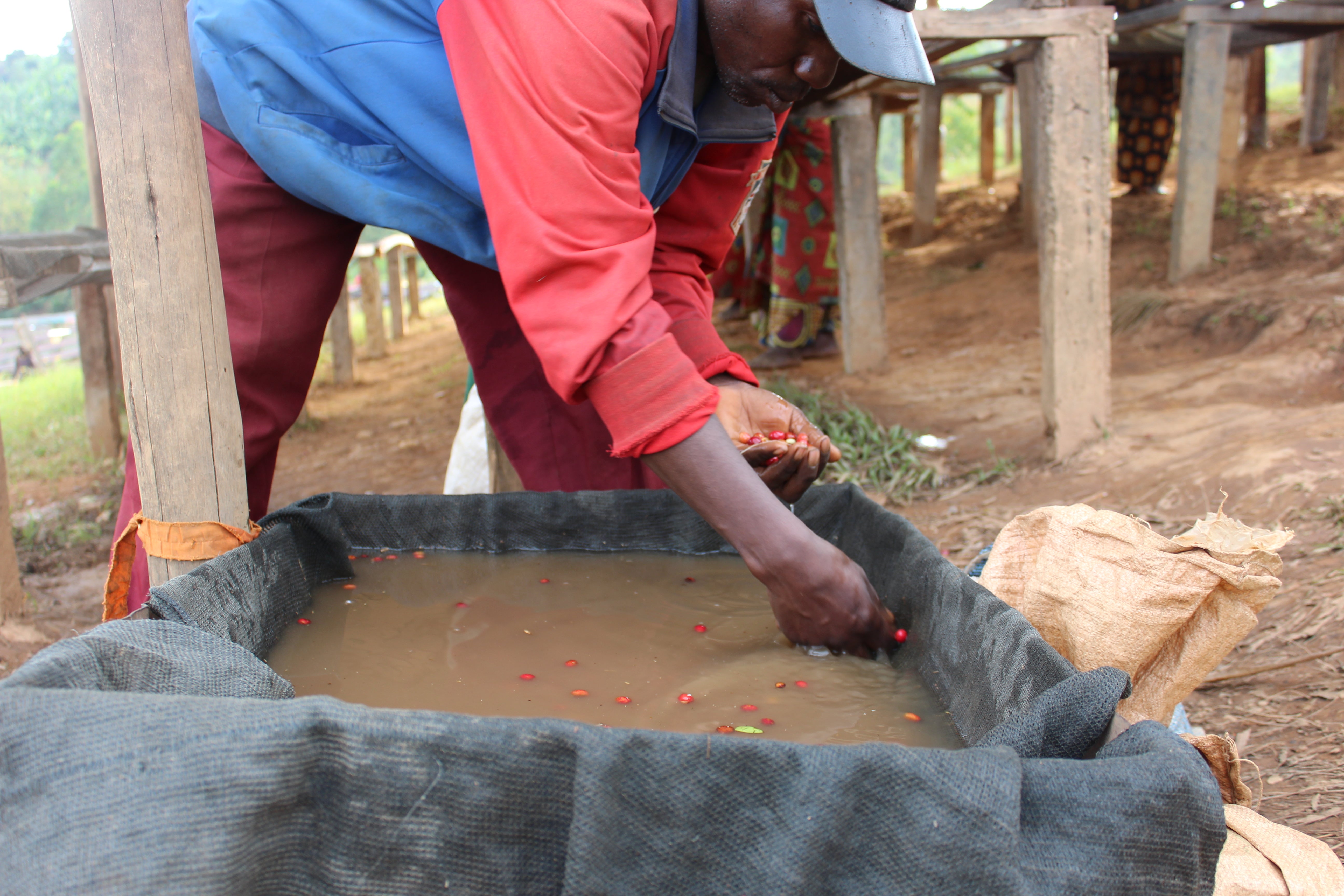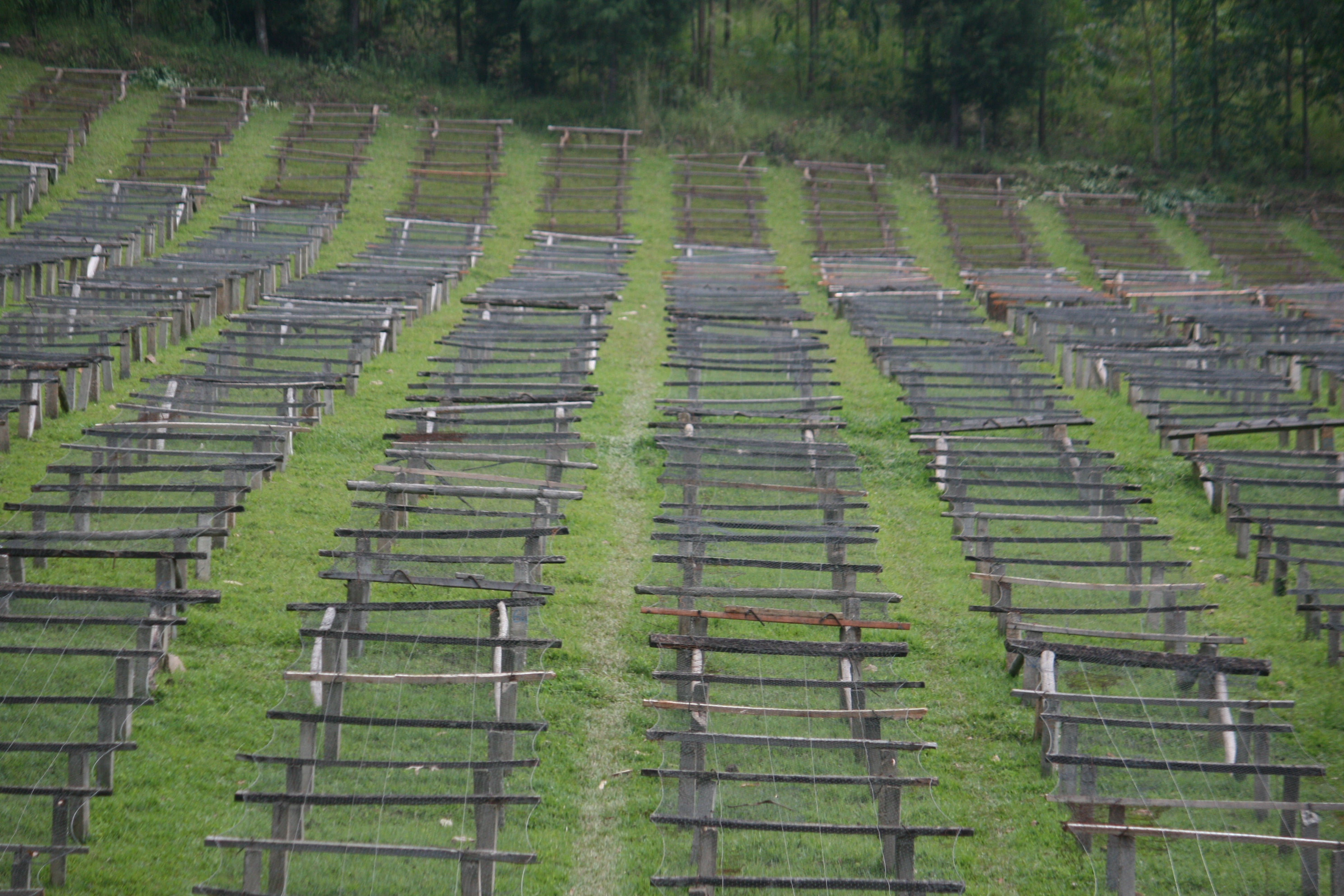-
CROP YEAR: 22/23
COFFEE GRADE: Natural scr 15+
FARM/COOP/STATION: Kayanza
VARIETAL: Red Bourbon
PROCESSING: Natural
ALTITUDE: 1700 meter
OWNER:SUBREGION/TOWN: Kayanza Commune
-
REGION: Kayanza
FARM SIZE: 3113 small hold farmers
HARVEST MONTHS: Marts - Juli
-
This Coffee
-
Nemba station lies in the northern province of Kayanza. Nemba is managed and led by an agronomist. The agronomist oversees the implementation of Good Agricultural Practices (GAPs) and farmer education. They collaborate with the producers to ensure they have access to the necessary farming tools. The agronomist also helps farmers determine and implement the practices best suited to the specific growing conditions of their farming plots.
All 3,000+ producers are smallholders who own an average of 150 coffee trees. The farms delivering cherry to Nemba are all located around 1,700+ meters above sea level, near the Kibila forest. The washing station has over two hundred drying tables and can process up to 750 metric tons of coffee cherry annually. Nemba uses a monitoring system to ensure traceability all along the production and processing chain.
The washing station participates in a number of farmer outreach and support projects including a livestock rearing project and a range of Farmer Hub projects centered on strengthening cooperatives and improving yields.

Harvest and post harvest
During the harvest season, all coffee is selectively handpicked. Most families only have 200 to 250 trees and harvesting is done almost entirely by the family.
Quality assurance begins as soon as farmers deliver their cherry. All cherry is floated in small buckets as a first step to check its quality. After floating, the higher quality cherry is sorted again by hand to remove all damaged, underripe and overripe cherries.
Cherry is laid in thin layers on raised tables where it is turned frequently to ensure even drying. Cherry is covered when it rains, during the hottest part of the day and overnight.

-
Cultivation
Many trees in Burundi are Red Bourbon. Because of the increasingly small size of coffee plantings, aging rootstock is a very big issue in Burundi. Many farmers have trees that are over 50 years old, but with small plots to farm, it is difficult to justify taking trees entirely out of production for the 3 to 4 years it will take new plantings to begin to yield. In order to encourage farmers to renovate their plantings, Greenco purchases seeds from the Institut des Sciences Agronomiques du Burundi (ISABU), establishes nurseries and sells the seedlings to farmers at or below cost. At the washing station, farmers can also get organic fertilizer derived from composted coffee pulp.
Despite the ubiquity of coffee growing in Burundi, each smallholder produces a relatively small harvest. The average smallholder has approximately 250 trees, normally in their backyards. Each tree yields an average of 1.5 kilos of cherry so the average producer sells about 200 to 300 kilos of cherry annually.

Coffee in Burundi
Burundi is best known as the "Land of A Thousand Hills". High plateaus dominate the landscape that is roughly the size of Belgium. They form a unique shape of "rolling" mountains. These green slopes are not only home to some of Burundi's finest coffee trees but also elephants, hippos, buffalos, and crocodiles.
Burundi and Belgium are not only similar in size but also share a history. When the Belgians colonized Burundi at the beginning of the twentieth century, they obliged each farmer to cultivate coffee. As a result, coffee is grown nearly everywhere in Burundi. There is a large network of washing stations scattered all over the country. Yet, after Burundi gained independence in 1962, coffee production was seen with a bitter aftertaste and rather considered a useful tool for governments to stabilize the country when necessary.
As all of the coffee had been grown by smallholders only, traceability was limited to regionally grouped washing stations, the so-called SOGESTALs (Sociétés de Gestion des Stations de Lavage). Also, quality-wise Burundian coffees did not strike with complexity but were solely sold as cash crops. However, in the past ten to fifteen years, Burundi has managed to present its coffees in a much brighter light and worked hard to achieve higher quality levels.
The global specialty scene thankfully welcomed the beans from the country that had still been shaken by civil unrests just a few years before. Today, Burundian coffees are sometimes even called the "hidden champions" of East Africa. Still, logistical obstacles pose a challenge to this landlocked country. Due to similar topography and resulting cup profile, Burundian coffees are often compared with Rwandan coffees: fruity complexity and soft body are among the most striking flavors found in these cups.
Kunder der har købt dette produkt har også købt


